Search
Search Results
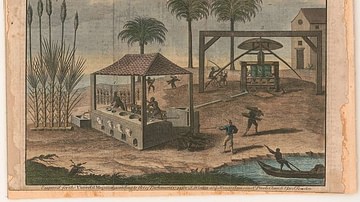
Article
Sugar & the Rise of the Plantation System
From a humble beginning as a sweet treat grown in gardens, sugar cane cultivation became an economic powerhouse, and the growing demand for sugar stimulated the colonization of the New World by European powers, brought slavery to the forefront...
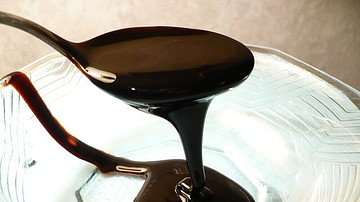
Definition
Sugar Act
The Sugar Act of 1764, also known as the American Revenue Act, was legislation passed by the Parliament of Great Britain on 5 April 1764 to crack down on molasses smuggling in the American colonies and to raise revenue to pay for the colonies'...
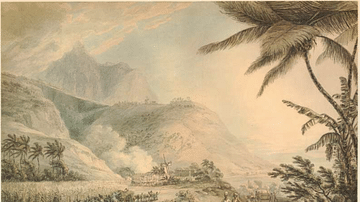
Article
Life on a Colonial Sugar Plantation
Raising sugar cane could be a very profitable business, but producing refined sugar was a highly labour-intensive process. For this reason, European colonial settlers in Africa and the Americas used slaves on their plantations, almost all...
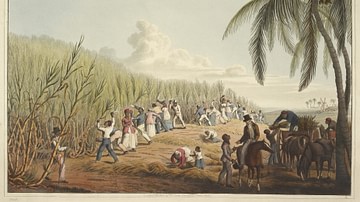
Article
Slavery in Plantation Agriculture
The first plantations in the Americas of sugar cane, cocoa, tobacco, and cotton were maintained and harvested by African slaves controlled by European masters. When African slavery was largely abolished in the mid-1800s, the center of plantation...
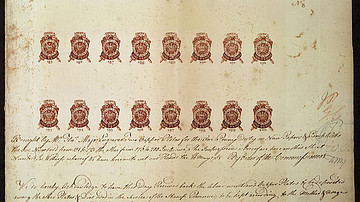
Definition
Stamp Act
The Stamp Act of 1765 was the first direct tax imposed on the 13 American colonies by the Parliament of Great Britain. It required the colonists to pay a tax on all printed materials including newspapers, legal documents, magazines, and playing...

Image
Slaves on an Antiguan Sugar Plantation
A scene showing slaves working on an Antiguan sugar plantation. Created in 1779 by Thomas Hearne. On the left are slaves cutting the cane, in the centre is the windmill for processing the cane and on the right slaves transport the refined...
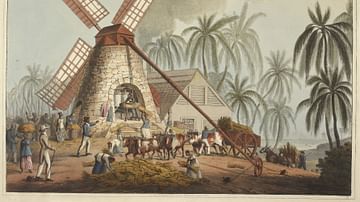
Image
Grinding Sugar Cane in a Windmill
The Mill Yard, part of the series Ten Views in the Island of Antigua by William Clark. Originally published/produced in Thomas Clay: London, 1823.
British Library.
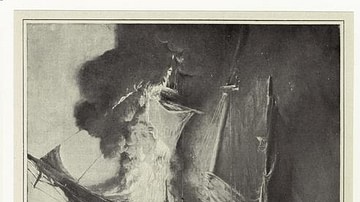
Definition
Gaspee Affair
The Gaspee Affair was an incident that occurred on 10 June 1772, when a group of American colonists from Rhode Island seized and burned the Royal Navy schooner HMS Gaspee after it had run aground. The affair contributed to the worsening of...
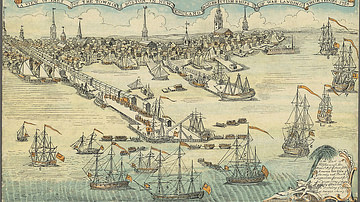
Definition
Townshend Acts
The Townshend Acts were a series of acts passed by the Parliament of Great Britain between 1767 and 1768 to tax and regulate the Thirteen Colonies of North America. When the colonists considered the acts an abuse of power and protested them...

Image
Colonial Sugar Cane Manufacturing
An illustration showing the manufacture of sugar from raw sugar cane. The image may represent a scene in the West Indies, although the machinery and techniques are applicable to colonial sugar plantations in the Caribbean, South America and...